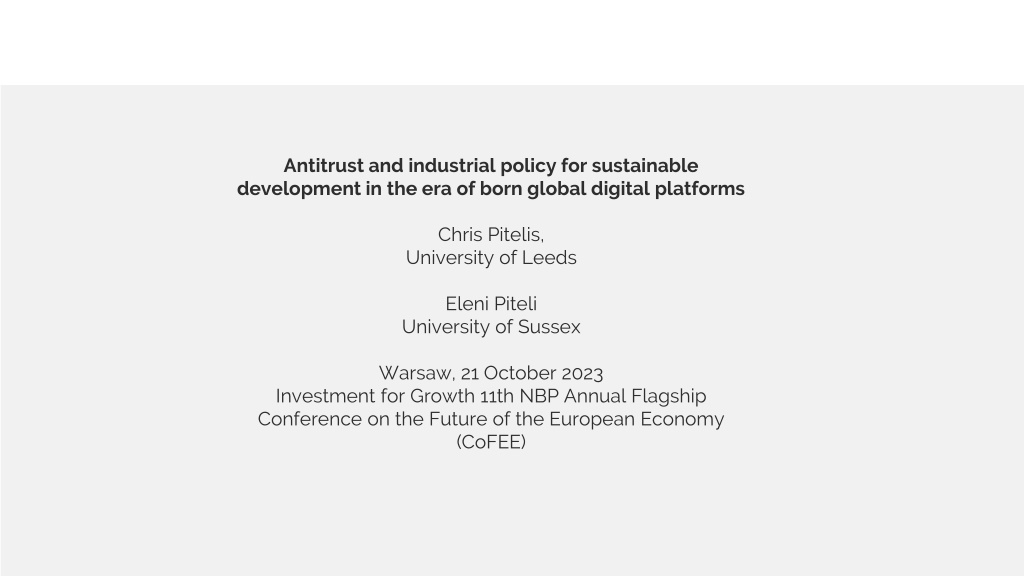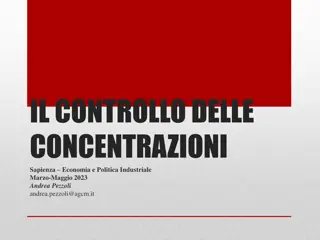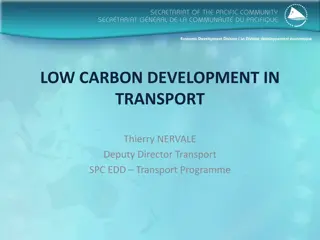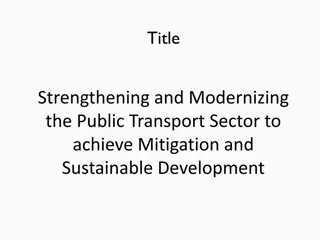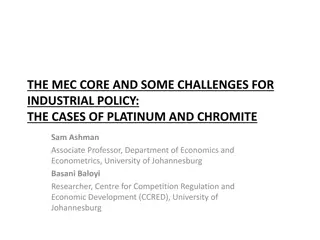Sustainable Development and Industrial Policy in the Era of Digital Platforms
The presentation discusses antitrust and industrial policy for sustainable development in the context of born global digital platforms. It covers neoclassical economic approaches, policy interventions for market failures, and organizational economics, focusing on value creation at different levels. The content emphasizes the need for strategic interventions to address industry structures, innovation, and governance in the face of emerging challenges.
- Sustainable Development
- Industrial Policy
- Digital Platforms
- Neoclassical Economics
- Organizational Economics
Download Presentation

Please find below an Image/Link to download the presentation.
The content on the website is provided AS IS for your information and personal use only. It may not be sold, licensed, or shared on other websites without obtaining consent from the author. Download presentation by click this link. If you encounter any issues during the download, it is possible that the publisher has removed the file from their server.
E N D
Presentation Transcript
Antitrust and industrial policy for sustainable development in the era of born global digital platforms Chris Pitelis, University of Leeds Eleni Piteli University of Sussex Warsaw, 21 October 2023 Investment for Growth 11th NBP Annual Flagship Conference on the Future of the European Economy (CoFEE)
Figure 1. Neoclassical economic approach: efficient allocation of scarce resources and consumer surplus/ welfare in the context of models of price-output equilibria in different types of industry structures-FOCUS ON PRICES P 8 Pm Pl Pc LAC Q Q Qm Qc MES Ql Q D MR
Anti-trust and industrial policy Conditional (minimally invasive) policy intervention in cases of market failures aimed to restore perfect competitive outcomes subject to the Williamson trade-off , the impact of industry structure on invention and innovation (Arrow-Demsetz exchange), second best considerations, government failures, not exacerbating market failures (and/or engendering market failures), considerations of remediality/(opportunity) cost of intervention (but expanding remit given pervasive externalities/market failures, especially in platform-based Big Tech firms) Strength: elegant, clear, simple Limitation: static (Pareto) efficiency, price-consumer surplus-welfare-based, competition as type of market structure, several more heroic assumptions about knowledge, innovation, capabilities, transaction costs etc. (several of which have helped engender alternatives that informed the next perspective)
Figure 2. Organizational economics/postclassical view: value creation framework at micro/firm, meso and national levels-FOCUS ON VALUE Entrepreneurship in Polity/commons Entrepreneurship in Public/government NATION Institutional and macroeconomic environment-governance/policy mix, effective demand MESO/SECTOR-REGION-ECOSYSTEM conduct-structure, degree of oligopoly, and regional-locational- ecosystem milieu MICRO/FIRM Organization (Governance Strategy, infra- structure) Increasing returns to scale Human Resources and Capabilities Value Technology and Innovation Entrepreneurship in Private/market
Anti-trust and industrial policy Regulation and industrial policy aimed at: value co-creation by balancing the comparative dis-advantages, complementarities and trade-offs between big business competition and cooperation (co-opetition), alongside market and ecosystem co-creation and small firm creation and growth Focus on intertemporal (dynamic) efficiency, competition a process (of creative destruction?), stakeholder welfare-based co-opetition, multi-level, (micro-firm, meso/industry-region, ecosystem- cluster, macro-national, and supranational Strength: Realism, accounting for impact of innovation, (non-collusive) cooperation and complementarities on intertemporal efficiency Limitation: less simple, less elegant and less operationalizable (regulator as deft juggler and orchestrator)
Comparison and shared limitations Organizational/postclassical view offers a wider remit but is less clear cut, harder to implement and likely to be felt to be too expansive Both downplay inter-national dimension (e.g. rents through international operations, geopolitics) and sustainability (environmental, social and economic) Inter-national considerations require incentive alignment that addresses hierarchically structured agencies, between firm and shareholders/stakeholders, firms and nation, nations and the world Key economic constraints to sustainability at all levels are regulatory capture , conflicts of interest, time inconsistencies, errors, limited capabilities and competence
Digital platform-enabled born global firms question focus on prices Key characteristics Proprietary Fungibility and scalability Economies of scope Network effects Network-ecosystem orchestration Value co-creation for private value capture Profiting through data and advertising, not nominal prices Spreading of fake news embedded in business model Privacy-surveillance Support through financial system and tax avoidance Ease of cross-border expansion-born global Market power morphing into political power, lobbying, regulatory capture and hence challenges to (non captured) regulators and polity at large
Digital platform regulation for sustaintable value co-creation Focus on total net added value, not just prices Guesstimate full ( shadow ) prices Encourage and reward value creating innovations Regulate business model-embedded negative externalities Regulate shoot out acquisitions Seek internalization of negative externalities Penalize abuse of position/power Regulate lobbying, close revolving doors Foster countervailing forces/power Aim for increased net value added-not throwing out the baby with the bathwater
Top-bottom-up public-private-polity partnership (PPPP)-based anti-trust and industrial policy Remit of public policy to foster subsidiarity-place-friendly (top-bottom-up), sustainable value co-creation by supporting the determinants of value in the context of public-private-polity partnerships centered around general-purpose technologies in clusters and ecosystems, Public sector and regional value capture can be supported through workable coopetition, inter-national integration and cooperation, positioning and branding strategies, level playing field-fostering mobility barriers, linkages between local production systems and global value chains These require the co-development of supporting and complementary institutions, and the leveraging of the comparative dis-advantages of private, public, and polity (social) action- entrepreneurship and implementation capacity, space, skills and capabilities
Conclusions PPPPs can help engender mutual stewardship and monitoring and support an anti-trust and industrial policy for sustainable value co- creation International coordination may point to need for accountable (non- capturable/captured) sustainability-focused international anti- trust/competition policy organization (or more simply, the expansion and enhancement of the WTO remit?) Despite their apparent orthogonality, pervasive market/sustainability failures can help bring closer (a more expansive variant of) the neoclassical with the postclassical views supporting a juggler-top- bottom-up orchestrator approach to anti-trust/competition and industrial policy
